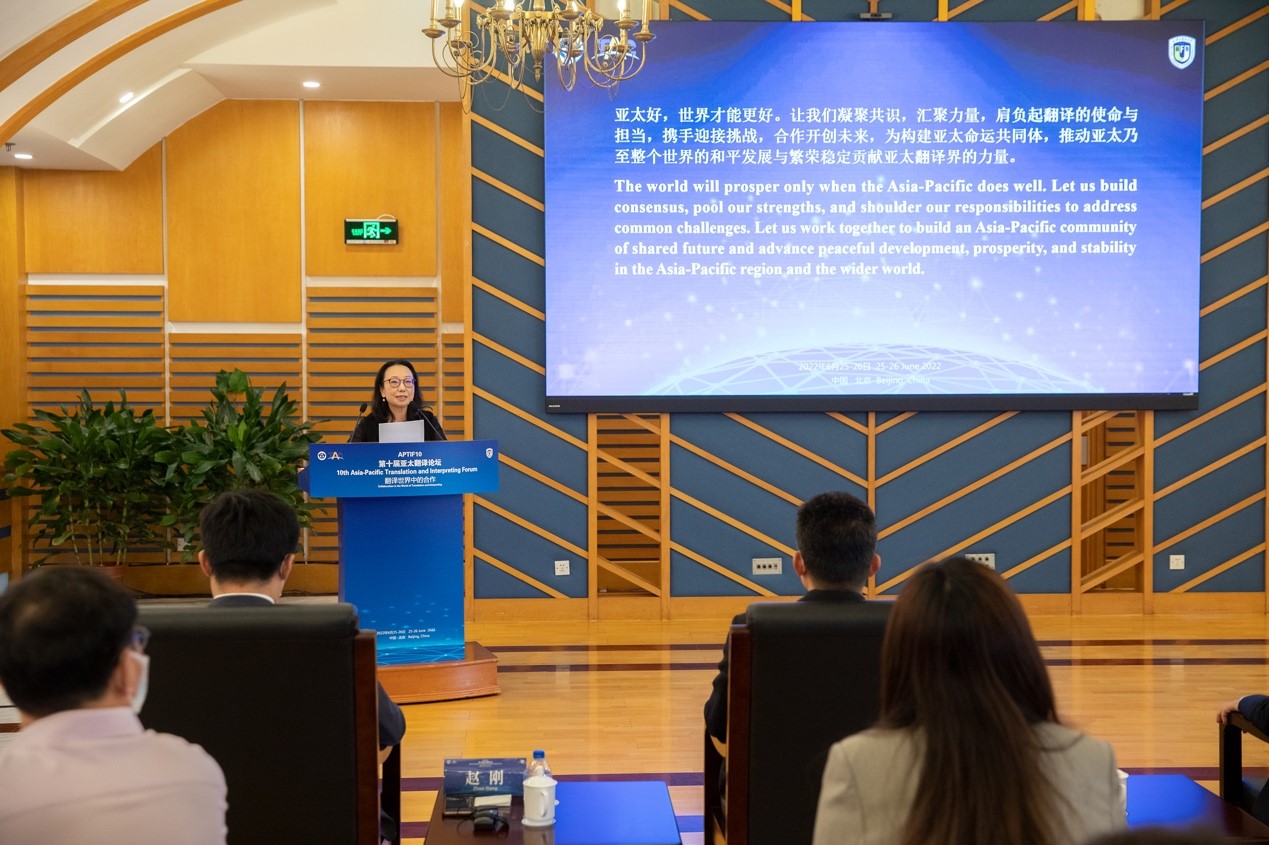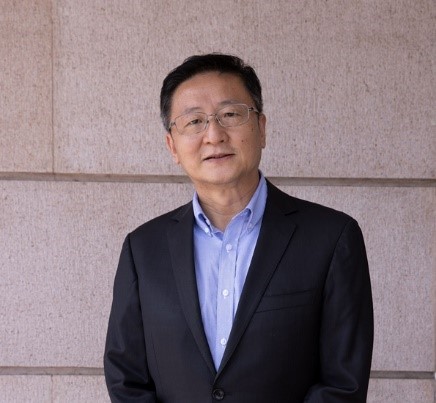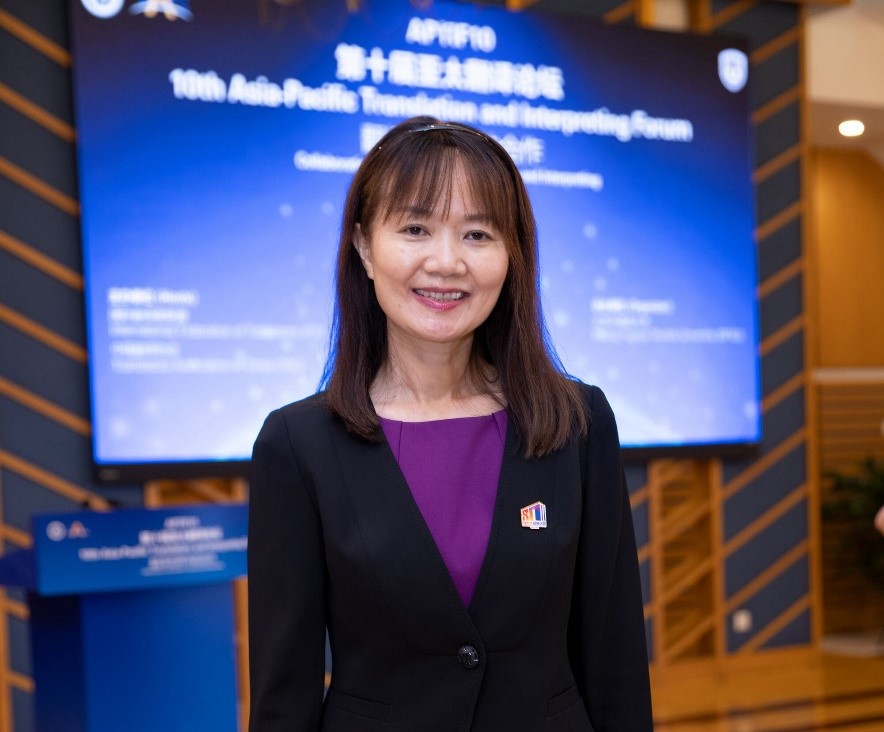
By Cui Can
A joint initiative on promoting cooperation within the translation and interpreting (T&I) community in the Asia-Pacific region was launched Sunday at the closing session of the 10th Asia-Pacific Translation and Interpreting Forum (APTIF) held in Beijing.
The forum, themed "Collaboration in the World of Translation and Interpreting: New Changes and New Modes in the New Era," attracted around 300 participants from 35 countries and regions both online and offline to conduct in-depth exchanges. They reached broad consensus on the role of translation and interpreting in boosting regional development and agreed to further enhance exchanges and cooperation.

The Asia-Pacific region has become the most dynamic area of the global economy and enjoys huge potential for further development, according to the initiative.
Last year, Beijing Foreign Studies University (BFSU), the organizer of the forum, released the 2021 Global Translation Index, which analyzed the translation capabilities of 193 countries and regions. Among the top 50 on the list, 12 were from the Asia-Pacific region, accounting for 24% of the total, highlighting the growth prospects and momentum of the region's language service industry, the report said.
The initiative states that translation, as a bridge between nations and countries, plays an indispensable role in people-to-people and cultural exchanges in the region.
In the context of the impact of COVID-19 and uncertainties in the world economy, it suggested the T&I community in the Asia-Pacific region advances communication between associations and personnel through practical T&I programs, explores the latest technological innovations in the T&I industry, strengthens the building of a cooperation mechanism, and joins hands to push forward common development and people-to-people exchanges in the region.
The initiative also appeals to members to expand their cooperation with the International Federation of Translators (FIT) and other international organizations, and calls for efforts to prepare the establishment of the FIT Asia-Pacific Center.
Experts and scholars hailed the initiative and shed light on the role of T&I in regional development and communication at the forum which was held in Beijing from June 25 to 26.

The Asia-Pacific region is home to some 4 billion people — 60% of the world's population — and includes the greatest linguistic and cultural diversity in the world, said Wang Xiaohui, editor-in-chief of the China Internet Information Center and vice president of the Translators Association of China (TAC). "Therefore, the initiative is of vital importance to pool the strength of the T&I community in the region, which will help give full play to the significant role translation plays in boosting regional economic cooperation and people-to-people exchanges."
He added that though Asia and Pacific remains the fastest growing region in the world, there is still unbalanced development between advanced economies and emerging markets in Asia. "By utilizing cooperation platforms such as the APTIF, countries like China, Japan and the Republic of Korea, which have built great strength in internet, AI and other sci-tech sectors, will have the opportunities to share their technological innovations in T&I with emerging countries," he said.
Alison Rodriguez, president of the FIT, also stressed the importance of using new technologies in translation. "Translation and interpreting skills are no longer just language skills," she said. "Although these are still the most important strength, translators and interpreters should also 'excel in technical skills,' which can help understand the purpose, process, complexities and nuance of the relevant work."
Lynne Bower, a professor at the University of Ottawa in Canada, highlighted the presence of human translators in computer-aided translation. She said that although advances in machine translation continue to be made, for the foreseeable future at least, human translators will still have a large role to play in the production of translated texts. "The computer assists translators in their work but does not do the translation for them and therefore does not eliminate the human translator from the process," she said.

As the T&I industry has thrived in recent years, it is necessary to further standardize the language services market and promote the overall standardization of the industry, said Ren Wen, dean of the Graduate School of Translation and Interpretation of BFSU.
The code of professional ethics for translators and interpreters, which was compiled by Ren and released in 2019, outlines the professional ethics and behavioral norms that translators and interpreters should follow when they engage in translation work. Ren hopes that these norms can help guide translators and interpreters as they make professional and ethical decisions in the course of their translation work.
"It will also help improve the professional ethics of translators and interpreters, and ensure an overall environment in which the T&I industry functions harmoniously," she said.